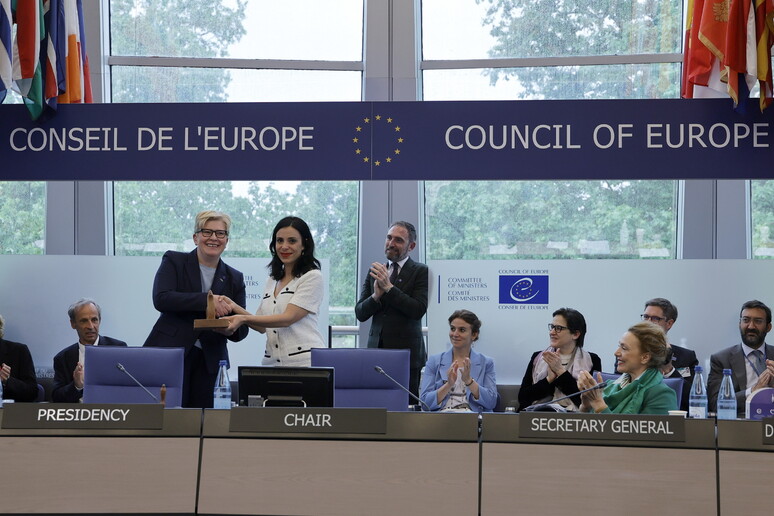While the relentless development of
generative artificial intelligence (AI) progresses, Europe
continues to represent a source of inspiration for the rest of
the world in terms of AI regulation.
The Council of Europe (CoE) has approved the first-ever
international legally binding treaty aimed at ensuring the
respect of human rights, the rule of law and democratic legal
standards in the use of AI systems.
The treaty was adopted on May 17, just a few months after the
EU's approval of the AI Act, the first legislation in the world
regulating the development, decommissioning and use of AI
systems.
The two legal tools, which are very different, however share
the same risk-based approach - which requires careful
consideration - to the potential negative consequences stemming
from AI use.
The aim is to take advantage of the new technology, guaranteeing
that it is used responsibly safeguarding democracy and human
rights.
The Convention was adopted in Strasbourg during the annual
ministerial meeting of the Council of Europe's Committee of
Ministers, which brings together the ministers of foreign
affairs of the 46 Council of Europe member States.
It was the outcome of two years of work of an
intergovernmental body, the Committee on Artificial Intelligence
(CAI), which brought together to draft the treaty not only the
members of CoE but also the EU, 11 non-member States (Argentina,
Australia, Canada, Costa Rica, the Holy See, Israel, Japan,
Mexico, Peru, the United States and Uruguay), as well as
representatives of the private sector, civil society and
academia.
The effort, according to the Council of Europe (CoE) Secretary
General Marija Pejčinović, responds to the "need for an
international legal standard supported by States in different
continents which share the same values to harness the benefits
of Artificial Intelligence, while mitigating the risks" and
ensuring that AI "upholds people's rights".
Nevertheless, the green light to the treaty, open to all
States in the world, nearly went unnoticed and was preceded by
controversy during its drafting and approval.
Prior to its approval, the UN High Commissioner for Human
Rights Volker Türk questioned the Convention.
Echoing criticism raised by several human rights
organizations, Türk in particular asked to reconsider the
general exemption from the treaty's implementation of national
security and the nearly total exclusion from obligations of the
private sector.
The parliamentary assembly of CoE also approved an opinion
complaining about the decision to introduce a different approach
for private actors.
But the appeals went unanswered.
An asymmetry between public and private actors remains in the
treaty with the effect that the first will have to implement the
rules while for the private sector the sides will be able to
adopt other measures to abide by the treaty.
CoE justified such flexibility saying that juridical systems
are different across the world.
Another controversial point concerns the exemption from
national security: States will not have to implement the treaty
in activities protecting national security interests provided
such activities respect international law and democratic
processes.
Moreover, it will be up to States to evaluate the need for a
moratorium, a ban or other appropriate measures concerning the
use of AI systems where there is a risk of incompatibility with
human rights standards.
Overall, the inconsistencies risk transforming the treaty
into a missed opportunity, according to critics.
ALL RIGHTS RESERVED © Copyright ANSA











